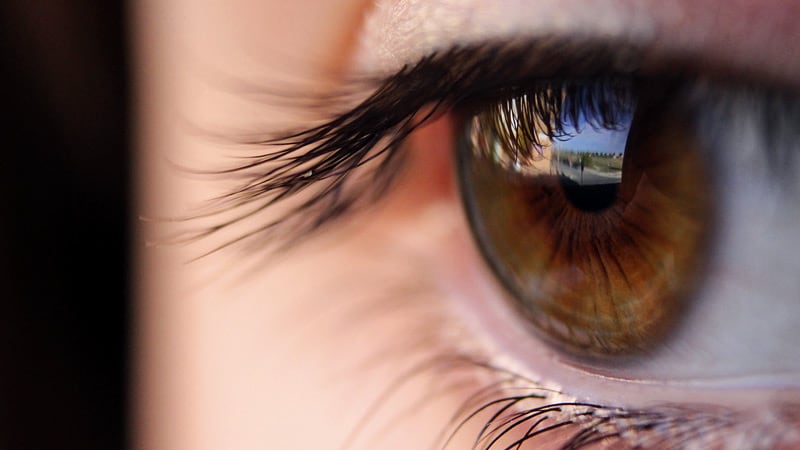Gene Therapy Improves Vision Loss in LHON Patients
Główne pojęcia
Gene therapy using lenadogene nolparvovec shows promising results in improving vision loss in LHON patients.
Streszczenie
The content discusses the effectiveness of gene therapy using lenadogene nolparvovec in treating Leber hereditary optic neuropathy (LHON) patients. The therapy led to a significant improvement in eyesight for patients with severe forms of the disease. Key highlights include:
- Study results of over 60 patients receiving lenadogene nolparvovec showed a 60% improvement in visual acuity.
- The therapy's efficacy and safety were confirmed in real-life settings.
- LHON is a genetic condition causing rapid vision loss due to mitochondrial DNA alterations.
- Lenadogene nolparvovec delivers the ND4 gene to retinal cells, restoring energy production.
- Patients receiving the therapy showed improved visual acuity scores at a 2-year follow-up.
- Safety concerns included intraocular inflammation, mostly treatable with topical steroids.
- Approval status of lenadogene nolparvovec was presented to the European Medicines Agency.
- Longer follow-up is needed to determine the therapy's lasting effects.
Dostosuj podsumowanie
Przepisz z AI
Generuj cytaty
Przetłumacz źródło
Na inny język
Generuj mapę myśli
z treści źródłowej
Odwiedź źródło
www.medscape.com
Gene Therapy Promising for Hereditary Vision Loss
Statystyki
At 2-year follow-up, 60% of patients experienced a clinically relevant improvement in visual acuity.
The mean change in BCVA from nadir at 1 year was -0.45 LogMAR, or +22.5 ETDRS letters.
60.0% of patients achieved a clinically relevant response with an improvement of ≥10 ETDRS letters.
42.9% of eyes had at least one episode of intraocular inflammation.
The episodes of inflammation lasted for an average of 155.8 days.
Cytaty
"Lenadogene nolparvovec is a long way from becoming available in the clinic." - Gianfranco De Stefano
"The results are very interesting and very promising." - Gianfranco De Stefano
Kluczowe wnioski z
by Liam Davenpo... o www.medscape.com 07-13-2023
https://www.medscape.com/viewarticle/994339
Głębsze pytania
How might the gene therapy landscape change with the potential approval of lenadogene nolparvovec?
The potential approval of lenadogene nolparvovec could significantly impact the gene therapy landscape, particularly in the treatment of Leber hereditary optic neuropathy (LHON). If approved, lenadogene nolparvovec would represent a groundbreaking advancement in the field of gene therapy, offering a promising treatment option for patients with this severe, progressive genetic condition. The efficacy and safety data presented in the study suggest that this gene therapy has the potential to provide clinically relevant improvements in visual acuity for individuals with LHON. This approval could pave the way for further research and development of gene therapies targeting other genetic disorders, expanding the scope of gene therapy applications in the medical field.
What are the implications of bilateral improvement in patients who received only a unilateral injection?
The implications of bilateral improvement in patients who received only a unilateral injection of lenadogene nolparvovec raise questions about the mechanism of action and distribution of the gene therapy within the eye. The finding that patients who received treatment in only one eye experienced improvement in both eyes suggests that the viral vector used in the gene therapy may have crossed over to the uninjected eye, leading to bilateral effects. This phenomenon challenges the traditional understanding of localized gene therapy delivery and highlights the need for further investigation into the distribution and systemic effects of intravitreal injections. Understanding the underlying mechanisms of this bilateral improvement is crucial for optimizing treatment strategies and ensuring the efficacy of gene therapies in targeted areas.
How can the gene therapy's long-lasting effects be ensured for LHON patients?
Ensuring the long-lasting effects of gene therapy for LHON patients requires comprehensive follow-up studies to assess the durability and sustainability of treatment outcomes. While the initial results of lenadogene nolparvovec show promising improvements in visual acuity, the long-term efficacy of the gene therapy remains uncertain. To address this, extended follow-up periods beyond the current 2-year timeframe are essential to monitor patients' progress and evaluate the persistence of therapeutic benefits. Additionally, future clinical trials should focus on optimizing dosing regimens, assessing the need for repeat injections, and investigating potential factors that may influence the longevity of treatment effects. By conducting rigorous long-term studies and monitoring patients over extended periods, researchers can ensure the gene therapy's lasting impact on vision and quality of life for individuals with LHON.
0
